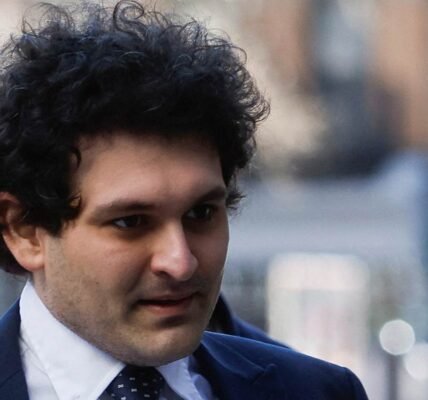 Nkosana Makate has slammed telecommunications operator Vodacom’s application for leave to appeal to the constitutional court in the 23-year-long “please call me” (PCM) saga, calling its constitutional validity into question.
Nkosana Makate has slammed telecommunications operator Vodacom’s application for leave to appeal to the constitutional court in the 23-year-long “please call me” (PCM) saga, calling its constitutional validity into question.
Vodacom approached the apex court following the supreme court of appeal’s dismissal of the mobile operator’s appeal against a high court judgment ordering that Makate be paid for the PCM invention under the assumption that he had an 18-year contract with the company.
“It fails to meet the juristic requirements for leave to appeal,” said Makate in his responding affidavit to the constitutional court opposing Vodacom’s application for leave to appeal. “It raises no constitutional issue, nor any arguable point of law of general public importance.”
A February majority judgment by the supreme court of appeal, if left unchallenged, would entitle Makate to compensation ranging between R29-billion and R63-billion, which would have “devastating consequences” for the mobile network operator, its employees and its investors, Bloomberg reported on Monday, quoting Vodacom’s application, which was filed on 26 February.
A 2016 order by the constitutional court said Vodacom CEO Shameel Joosub should work out fair compensation, which Joosub calculated at R47-million at the time, Bloomberg reported.
Vodacom has argued that the supreme court judgment “impinges on the rule of law” in terms of section 1 of the constitution and deprives the mobile operator of a fair trial under section 34.
How much
The constitutional court had found in 2016 that Makate was the inventor of the PCM service. In his application, Makate highlighted the court’s 2016 finding, adding that the matter in dispute now is not whether or not he should be paid by Vodacom but how much he ought to receive (and how the figure ought to be calculated).
In its application to the top court, Vodacom has accused the supreme court of appeal of “misdirecting itself” by deciding on issues that had not been placed before it by either Vodacom or Makate. In his responding affidavit, Makate retorted by saying that Vodacom seeks to characterise what is “nothing more than a factual dispute” as a “jurisdictional” issue.
Vodacom also alleged the appeals court only had regard to Makate’s evidence “while ignoring swathes of evidence” the company presented. But Makate said the judge’s findings were in line with the evidence presented, and criticised Vodacom for what he called “the striking lack of evidence” it presented to the court.

Now that both parties have presented their arguments to the constitutional court, a date must be set down for the matter to be heard, which could take months. A judgment could take at least a year, assuming the long-running dispute is not settled out of court before then.
Read: Makate judgment is ‘fundamentally flawed’: Vodacom
The prospect of an out-of-court deal has risen, with the news that Vodacom and Makate met on Tuesday for private talks about a possible resolution. A Vodacom spokesman declined to comment on those discussions, saying confidentiality precluded the operator from saying anything at this stage. – © 2024 NewsCentral Media



